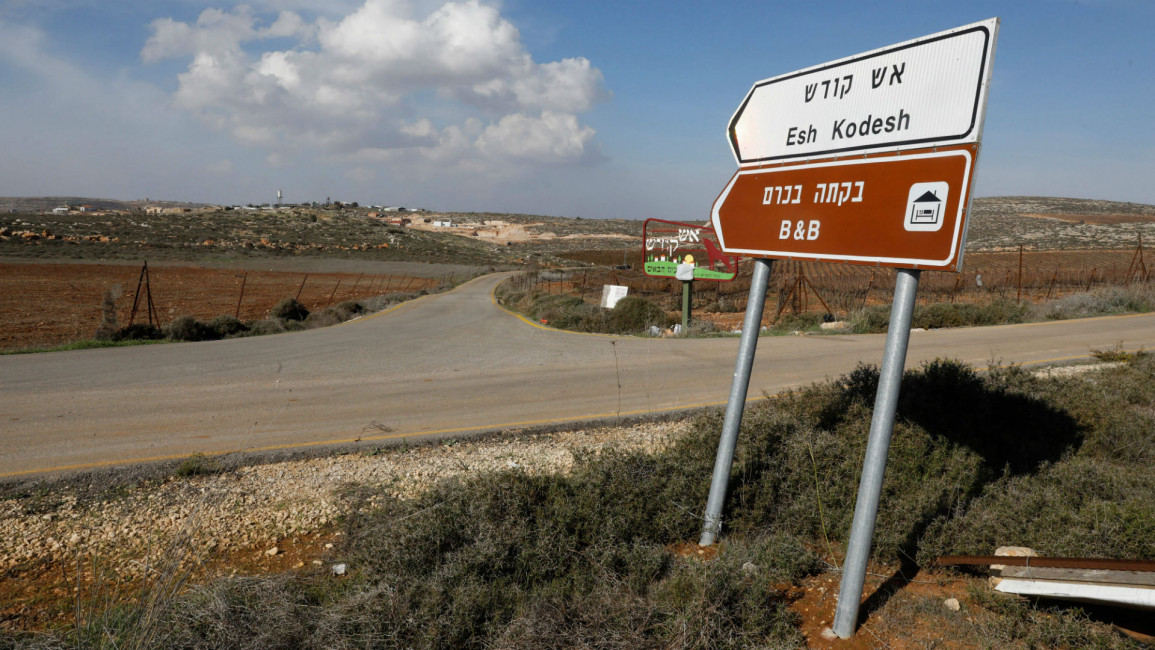Settlement hotels part of 'detrimental' West Bank expansion policy, says HRW
Such grants have until now only been available for hotel projects within the state of Israel, while those in settlements required government approval. However the change in policy reflects a loosening of restrictions that demonstrate the Israeli government is continuing "full-bore" with settlement expansion, Human Rights Watch's Israel and Palestine director Omar Shakir told The New Arab.
Rights groups including Human Rights Watch (HRW) and Amnesty International led successful campaigns last year encouraging online letting services such as AirBnb stop listing private holiday rentals in the occupied West Bank.
After having agreed to end the settlement listings in November, AirBnb backtracked on their decision in April, after a group of Israeli lawyers threatened to sue the accommodation-sharing company. AirBnb now says it will donate profits from bookings in the territory to charity.
"Any hotel operator that is providing tourism services in the West Bank is inherently benefitting from contributing to rights abuse and violations," Shakir told The New Arab.
For first time in the history of the settlement movement, the Tourism Ministry has made monetary grants available for the construction of hotels in Area C of the West Bank.
— Mairav Zonszein מרב זונשיין (@MairavZ) 30 April 2019
Governments too are obligated under international law to advise businesses operating in their country how they can take measures to prevent them from being complicit in rights abuses, Shakir added.
Israel however is doing "the exact opposite", by effectively encouraging businesses to take an active role in settlement expansion.
 |
The greatest impediment to Palestinian economic development in the West Bank are settlements and the effects of settlements - Omar Shakir |  |
"They're removing another barrier that makes it even easier for settlements to expand and for tourism services to continue in the occupied West Bank, in clear violation of the most basic notions of international law," he added.
The expedited easing of restrictions on settlement expansion could well be part of an emerging pattern following Prime Minister Binyamin Netanyahu's announcement in April he plans to annex illegal settlements in the West Bank.
Twitter Post
|
The tourism industry is a special focus of the Israeli government, as it helps normalise the occupation and settlement enterprise.
The head of the council of Efrat, one of the nearly 250 settlements and settlement outposts in the West Bank, told The Jerusalem Post earlier this month, "tourists are Israel's best global ambassadors in the promotion of Zionism" and in the struggle against the boycott movement.
"Tourism is one of a range of tools that has been used by the Israeli government as a basis to grab land, and to expand their control in ways that abuse the rights of Palestinians," Shakir explained.
"We've seen it in occupied East Jerusalem, in the Old City, and in many other areas in the West Bank."
Shakir warned against taking claims at face value that increased enterprise in the settlements will mean more jobs for Palestinians.
"The greatest impediment to Palestinian economic development in the West Bank are settlements and the effects of settlements," he said, pointing out that the World Bank estimates the West Bank economy loses several billion dollars a year as a result of restrictions in Area C.
Area C constitutes around 61 percent of West Bank territory. It falls under Israeli military and civil control and is where the most of the settlements are built.
 |
Palestinians are often forced to work in settlements because Israeli policy deprives them of many other opportunities, including taking away land that could be used for agriculture and restrictions on trade and movement - Omar Shakir |  |
"The reality is that Palestinians are often forced to work in settlements because Israeli policy deprives them of many other opportunities, including taking away land that could be used for agriculture, and restrictions on trade and movement that inhibit the ability to have a functioning economy," he added.
"Settlement expansion not only is itself illegal and contributes to rights abuse, but even on a pure economic analysis, it’s detrimental for the Palestinian economy."
If Shakir's appeal at the Supreme Court is denied, he will become the first person legally present in the country to be deported under the recent legislation.



